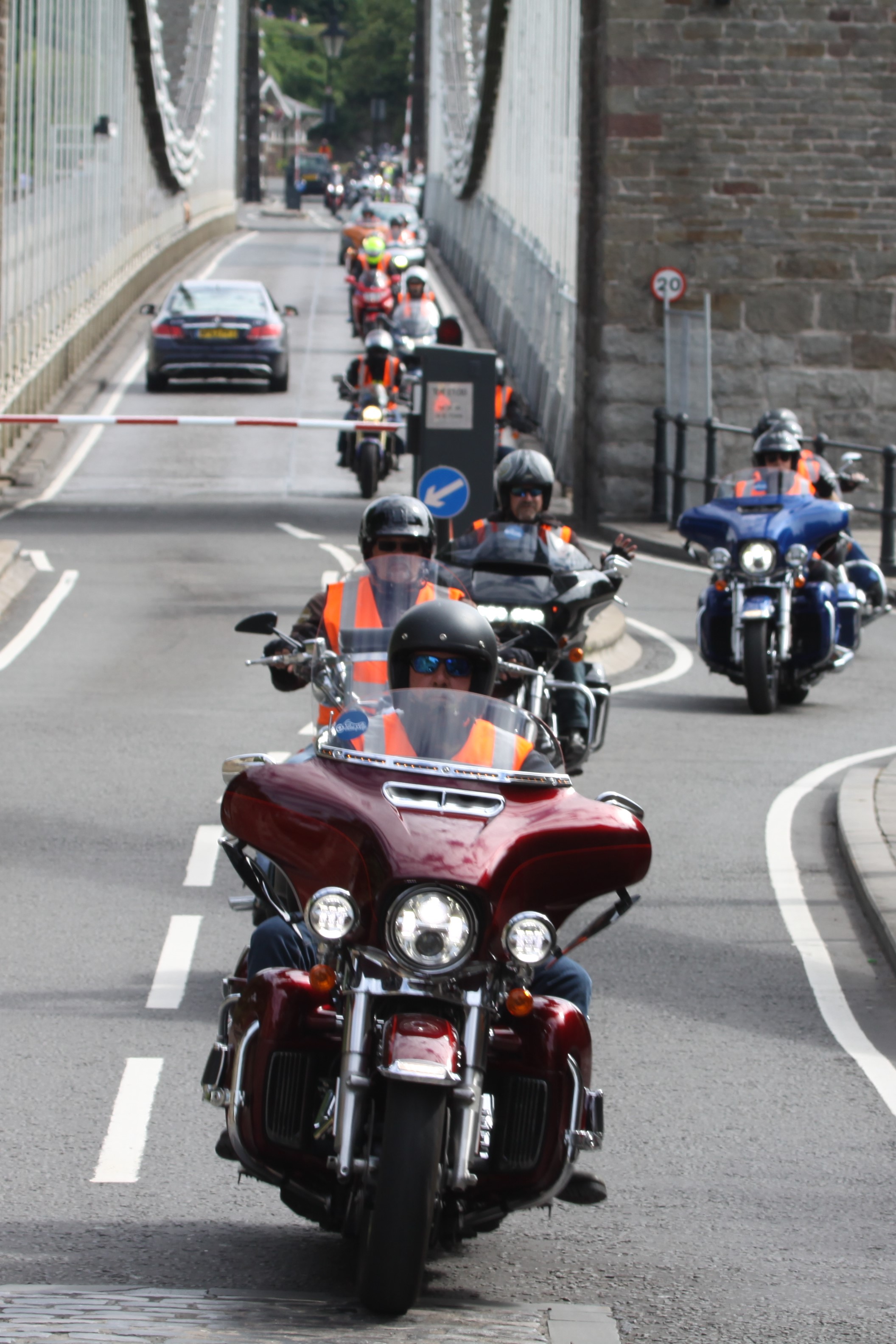Local charity’s doctors and paramedics offer motor bikers some road safety tips based on accidents they see every day
The GWAAC crew are doctors and paramedics with specialist training that essentially bring the skills and expertise found in a hospital to the side of the road, a park or someone’s house or back garden.
The crew are busier now than ever. 2018 has shown GWAAC attending on average 5 jobs a day. One day in May, the total flying hours were 3 hours and 45 minutes, meaning the team surpassed the record of hours flown in one given day since the charity started. GWAAC continues to look for ways to enhance the level of care provided in order to ensure the best possible outcome for patients. Last summer, the charity introduced fresh frozen plasma to their kit which, with its vital clotting factors, can stabilise a patient who is losing a lot of blood at a rapid rate. In order to continue to develop their service, they of course need to raise more funds, and statistics are showing that the rate of incidents is on the rise.
Given that so many of the incidents GWAAC attend to are road traffic collisions, often involving motorbikes, one of the charity’s doctors, Ed Valentine, provides tips which could help to prevent more of the type of things that Ed and his team see regularly. Ed says “I suppose they are fairly obvious”, however at GWAAC we feel that a reminder could only be of benefit.
Tips to consider for motorcyclists out there:
- Reduce speed – any collision is going to be more serious the faster the bike is travelling. Sticking to the speed limit and travelling at a speed appropriate to the road, and also noting weather and traffic conditions, are important.
- Anticipate other road users doing silly things, for example, cars pulling out of junctions without looking. Take extra care and slow down when approaching junctions or crossroads.
- Wear highly visible clothing so that you’re seen and check all the lights on your bike are working. The team say that they rarely attend to accidents where bikers are actually wearing high visibility clothing. Wear clothes that make you seen!
- Make sure the bike is in good working condition, check the tyres and brakes for example.
- Wear appropriate clothing and safety protection – a proper helmet is essential and wearing leathers is vital to prevent serious injury.
- Don’t ride when tired.
- If in doubt go slower and be cautious.
Many incidents that Ed and the team attend to have occurred when bikes have overtaken slower moving vehicles. Ed highlights this as a particular cause of the accidents they see, and urges people to take care when overtaking.
Indeed, these tips don’t just apply to motorcyclists; car drivers should take note and be bike aware.
Sunday 15th July sees the charity’s annual Ride4GWAAC event which unites riders and highlights safety issues as a biker. Some riders taking part may have been patients that our doctors like Ed have saved.
To register and buy a ticket, click here. The event isn’t just for bikers and includes a family fun festival which follows the ride out and is completely free of charge! Please support your local air ambulance charity and join us on Sunday 15th July at St Mary’s Old Boys Rugby Club in Bradley Stoke
Further information can be found on our website www.ride4gwaac.com By coming along and supporting GWAAC, you will keep our air ambulance flying and saving lives for the 2.1 million people that live in our region. We look forward to seeing you there!
ENDS
Notes for editors
- GWAAC provide the critical care and air ambulance service for 2.1 million people across the counties of Bath and North East Somerset, Bristol, South Gloucestershire, Gloucestershire, North Somerset and surrounding areas.
- In 2018 the charity celebrates ten years since its first flight.
- The GWAAC critical care team consists of a highly trained and experienced Critical Care Paramedic and Doctor, who bring the skill and expertise of an Accident and Emergency Department to the patient.
- In 2017 the Critical Care Team attended 1,824 jobs: by helicopter and by one of our critical care cars.
- We need to raise over £3 million each year to stay operational, but receive no day to day funding from the Government or National Lottery.
For further information, contact:
Lucy Munn
PR & Digital Communications Coordinator
07484 906493
www.greatwesternairambulance.com
@GWAAC
Press release distributed by Pressat on behalf of Great Western Air Ambulance Charity, on Thursday 28 June, 2018. For more information subscribe and follow https://pressat.co.uk/
Charity GWAAC Ride Out Motor Bikers Festival Summer Saving Lives Safety Road Charities & non-profits Health Leisure & Hobbies Sport Transport & Logistics Travel & Tourism
Published By

07484906493
pr@gwaac.com
https://greatwesternairambulance.com/
claire.harris@gwaac.com
Visit Newsroom
You just read:
Local charity’s doctors and paramedics offer motor bikers some road safety tips based on accidents they see every day
News from this source:


